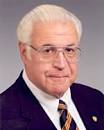
Recently Diagnosed or Relapsed? Stop Looking For a Miracle Cure, and Use Evidence-Based Therapies To Enhance Your Treatment and Prolong Your Remission
Multiple Myeloma an incurable disease, but I have spent the last 25 years in remission using a blend of conventional oncology and evidence-based nutrition, supplementation, and lifestyle therapies from peer-reviewed studies that your oncologist probably hasn't told you about.
Click the orange button to the right to learn more about what you can start doing today.
- You are here:
- Home »
- Blog »
- Multiple Myeloma »
- Arrhythmias (Afib) Caused by Stem Cell Transplants
Arrhythmias (Afib) Caused by Stem Cell Transplants

“Our data suggest that arrhythmias after transplants are associated with significant morbidity and mortality. A prospective study of arrhythmia in the transplant setting is warranted…”
You slowly wake after eight hours of surgery. A man walks over to your bed, gently sits down, introduces himself and explains that you have a blood cancer called multiple myeloma. You’ve never heard of multiple myeloma. You cannot believe that, at the age of 34, you have an incurable blood cancer. You place all of your trust in your oncologist and the hospital.
Skip ahead 25 years. You come across the two studies linked and excerpted below.
One of the first study’s authors was the oncologist who managed my hematopoietic cell transplant in December of 1995 when I was undergoing treatment for multiple myeloma at University Hospitals of Cleveland. His name is Hillard Lazarus M.D. I developed atrial fibrillation aka Afib, a heart arrhythmia, in late 2010- 15 years after my SCT.
Could the “one center” highlighted in the paper below be University Hospitals of Cleveland- the hospital where Dr. Lazarus oversaw my hematopoietic cell transplant?
When Dr. Berger and Dr. Lazarus prescribed the many cardio-toxic chemotherapy regimens followed by an ASCT in the months following my diagnosis of multiple myeloma, do you think they knew about the risks of arrhythmias outlined in the study linked below? Being the head of the stem cell transplant program at U.H. as well as an author of the study below, I have to wonder what Dr. Lazarus knew about the chances of me developing heart damage from the cardio-toxic chemotherapy regimens that he prescribed?
My understanding is that the cardio-toxicity of the chemo regimens below have been well-documented for decades:
- Adiamycin
- Melphalan
- Busulphan
- Cytoxan
These are not the only cardio-toxic chemotherapy regimens used in routine oncology. I list these four because Dr. Berger and Dr. Lazarus prescribed all four to me.
What scares me more than the first study’s findings below, is the probability that there are thousands of other people who had a stem cell transplant that will develop heart problems of some kind years after their treatment. The first study below is talking about heart damage during and immediately after a stem cell transplant. The second study below is listing organ damage occurring years after stem cell transplants.
Perhaps Dr. Berger and Dr. Lazarus simply didn’t know of the serious long-term health effects of adriamycin, melphalan, busulphan and cytoxan.
I say this because of the second study linked below. Conventional oncology focuses on the short-term. University Hospitals has never contacted me, never followed up to check on the many long-term and late stage side effects that I live with.
Smita Bhatia does a great job of summarizing the long-term and late stage side effects caused by stem cell transplants. My heart damage is only one of several painful, life threatening problems.
And the longer I live, the greater the risk of mortality.
I have to be honest. If the chemo and SCT had prolonged my life I would have to admit some sort of compromise between length of life and quality of life. But my aggressive, conventional oncologic therapies did not slow my multiple myeloma at all. The argument can be made that my aggressive, high dose cardio-toxic chemotherapy regimens made my blood cancer more aggressive that it would have been otherwise.
To add insult to injury, University Hospitals charged me tens of thousands of dollars. Sure, my health insurance paid for most of my therapy but co-pays and deductibles add up when you are talking about that much money.
What do you do, what do you think when you realize, over and over again, that the old saying “the cure is worse than the disease” is true?
David Emerson
- MM Survivor
- MM Cancer Coach
- Director PeopleBeatingCancer
Recommended Reading:
- Myeloma Stem Cell Transplant Side Effect- PTSD
- Multiple Myeloma Stem Cell Transplant- Lowers Testosterone
- Multiple Myeloma Chemotherapy- When Cancer Treatment Might Kill You
- Autologous Stem Cell Transplant for Multiple Myeloma- What you Need to Know
Arrhythmias in the setting of hematopoietic cell transplants
2015 Sep
Prior studies report that 9-27% of persons receiving a hematopoietic cell transplant develop arrhythmias, but the effect on outcomes is largely unknown.
We reviewed data from 1177 consecutive patients ⩾40 years old receiving a hematopoietic cell transplant at one center during 1999-2009. Transplant indication was predominately leukemia, lymphoma and multiple myeloma. Overall, 104 patients were found to have clinically significant arrhythmia: 43 before and 61 after transplant.
Post-transplant arrhythmias were most frequently atrial fibrillation (N=30), atrial flutter (N=7) and supraventricular tachycardia (N=11). Subjects with an arrhythmia post transplant were
- more likely to have longer median hospital stays (32 days vs 23, P=<0.001),
- a greater probability of an intensive care unit admission (52% vs 7%; P<0.001),
- greater probability of in-hospital deaths (28% vs 3%, P<0.001), and
- greater probability of death within 1 year of transplant (41% vs 15%; P<0.001) compared with patients without arrhythmia at any time.
In a multivariate model including age at transplant, diagnosis, history of pretransplant arrhythmia, and transplant-related variables, post-transplant arrhythmia was associated with a greater risk for death within a year of transplant (odds ratio 3.5, 95% confidence interval: 2.1, 5.9; P<0.001). Our data suggest that arrhythmias after transplants are associated with significant morbidity and mortality. A prospective study of arrhythmia in the transplant setting is warranted.
Long-term health impacts of hematopoietic stem cell transplantation inform recommendations for follow-up
“However, hematopoietic stem cell transplantation (HSCT) survivors are at risk of developing long-term complications, such as:
- endocrinopathies,
- musculoskeletal disorders,
- cardiopulmonary compromise and
- subsequent malignancies.
These complications have a direct impact on the morbidity and mortality experienced by HSCT survivors. Two-thirds of HSCT survivors develop at least one chronic health condition; while a fifth develop severe or life-threatening conditions. HSCT patients who have survived for at least 5 years post-transplantation are at a fourfold to ninefold increased risk of late mortality for as long as 30 years from HSCT, producing an estimated 30% lower life expectancy compared with the general population…”



